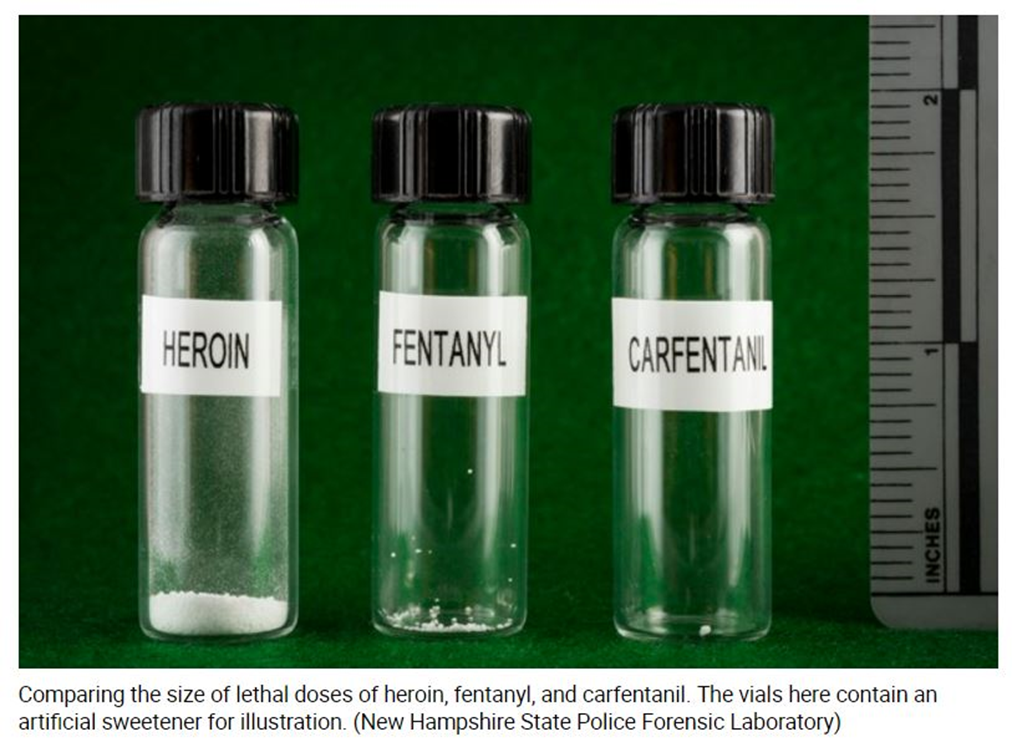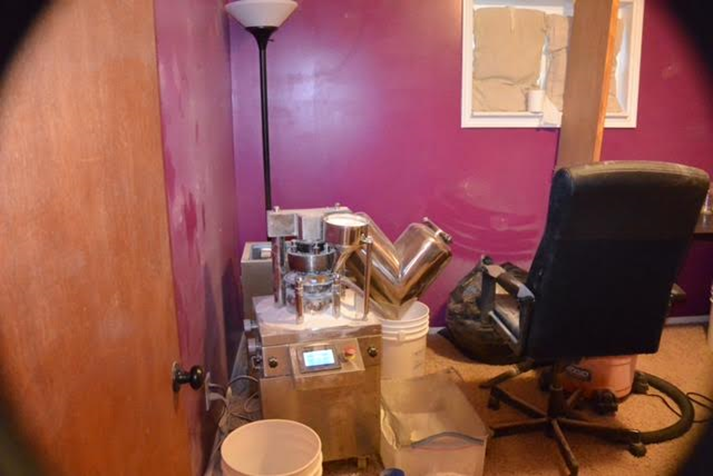Fentanyl is a powerful drug that can turn deadly in a matter of seconds. Individuals can be negatively affected by it, even if it is just through skin contact or inhalation. Contamination occurs when the potent synthetic opioid, often found in illicit drugs, spreads onto surfaces, posing severe health risks. Proper cleanup and effective fentanyl decontamination is vital to prevent accidental exposure and eliminate the threat of residual fentanyl. Swift and thorough cleanup not only safeguards individuals but also ensures the safety of the surrounding environment, reducing the risk of accidental poisoning and protecting public health.
What is Fentanyl?
Fentanyl is a potent synthetic opioid pain reliever similar to morphine but much stronger. It is typically prescribed to manage severe pain, such as after surgery or for cancer patients. Illicitly produced fentanyl, often mixed with other drugs like heroin or cocaine, poses a significant risk due to its high potency. Even small amounts can cause overdose and death. In 2023, the overdose death rate topped 112,000 in a 12 month period for the first time, according to the Centers for Disease Control and Prevention.
Fentanyl works by binding to opioid receptors in the brain, blocking pain signals and inducing feelings of euphoria and relaxation. However, its potency also makes it highly addictive and dangerous when misused. Upon entering the bloodstream, it swiftly binds to opioid receptors in the brain, inducing a cascade of effects including respiratory depression and sedation. With each breath growing shallower and every heartbeat slowing, the window for intervention rapidly narrows. In many cases, by the time medical assistance arrives, it is often too late to reverse the overdose’s fatal course.
Risks of Fentanyl

Exposure to fentanyl presents severe health risks, including overdose and death. Inhalation or skin contact can lead to rapid absorption into the bloodstream, which causes respiratory depression, drowsiness, and loss of consciousness. Long-term exposure or repeated contact may result in addiction, respiratory problems, or chronic health issues. Accidental exposure to contaminated surfaces or airborne particles poses dangers to law enforcement, medical personnel, and the general public, which is why it is important to recognize signs of contamination to ensure proper protocol is followed when addressing the problem.
Signs of a Contamination
Here are some signs of a fentanyl contamination:
- Unusual Powdery Residue: Discovering a white or off-white powdery substance in unexpected areas, such as on countertops, floors, or surfaces.
- Unexplained Illness or Symptoms: Experiencing symptoms such as dizziness, nausea, difficulty breathing, or skin irritation without an apparent cause.
- Drug Paraphernalia: Finding items commonly associated with drug use, such as syringes, pill bottles, or powdery residue, in or around the area.
- Unusual Odors: Detecting strange chemical or medicinal odors, particularly in enclosed spaces or areas where drug use may occur.
- Altered Behavior: Observing sudden changes in behavior, such as confusion, disorientation, or lethargy, in individuals who have been in the contaminated area.
- Reports of Drug Activity: Hearing reports or witnessing suspicious drug-related activity in the area from neighbors or community members.
If you notice any of these signs, there are steps you can take to ensure a proper cleanup and decontamination process.
What to Do if You Think You Found Fentanyl
ou suspect you have found fentanyl, take the following actions:
- Do Not Touch: Avoid direct contact with the substance or any surrounding items.
- Secure the Area: Limit access to the area to prevent accidental exposure.
- Notify Authorities: Contact emergency services or local law enforcement immediately.
- Follow Instructions: Follow instructions from emergency responders carefully, and provide as much information as possible about the location and appearance of the substance.
- Protect Yourself: If you must remain in the vicinity, wear appropriate protective gear such as gloves and a mask.
- Avoid Disturbing the Area: Refrain from disturbing the substance to prevent the release of airborne particles.
- Wait for Professional Assistance: Allow trained professionals to assess and handle the situation. They will conduct proper testing and safely dispose of the substance.
- Seek Medical Attention if Exposed: If you or someone else has been exposed to fentanyl, seek medical attention immediately, even if no symptoms are present.
- Decontaminate Yourself: If you have come in contact with the substance, follow decontamination procedures recommended by medical professionals.
Remember, immediate action and caution are essential to prevent accidental exposure and ensure the safety of everyone involved.

Our Services at Apple Environmental
Proper precautions need to be taken to prevent accidental poisoning in homes with fentanyl contamination. Apple Environmental specializes in fentanyl decontamination and cleanup with advanced equipment and specialized cleaning agents to eradicate fentanyl residue from affected areas. These products are similar to the products used for meth decontamination to provide comprehensive surface cleaning and air infiltration.
With meticulous attention to detail and adherence to safety protocols, Apple Environmental ensures effective fentanyl decontamination products to give peace of mind to our clients that they will stay safe during the fentanyl cleanup. Visit our site to learn more about our products and order yours today.
Please see Fentanyl decontamination guidelines:







